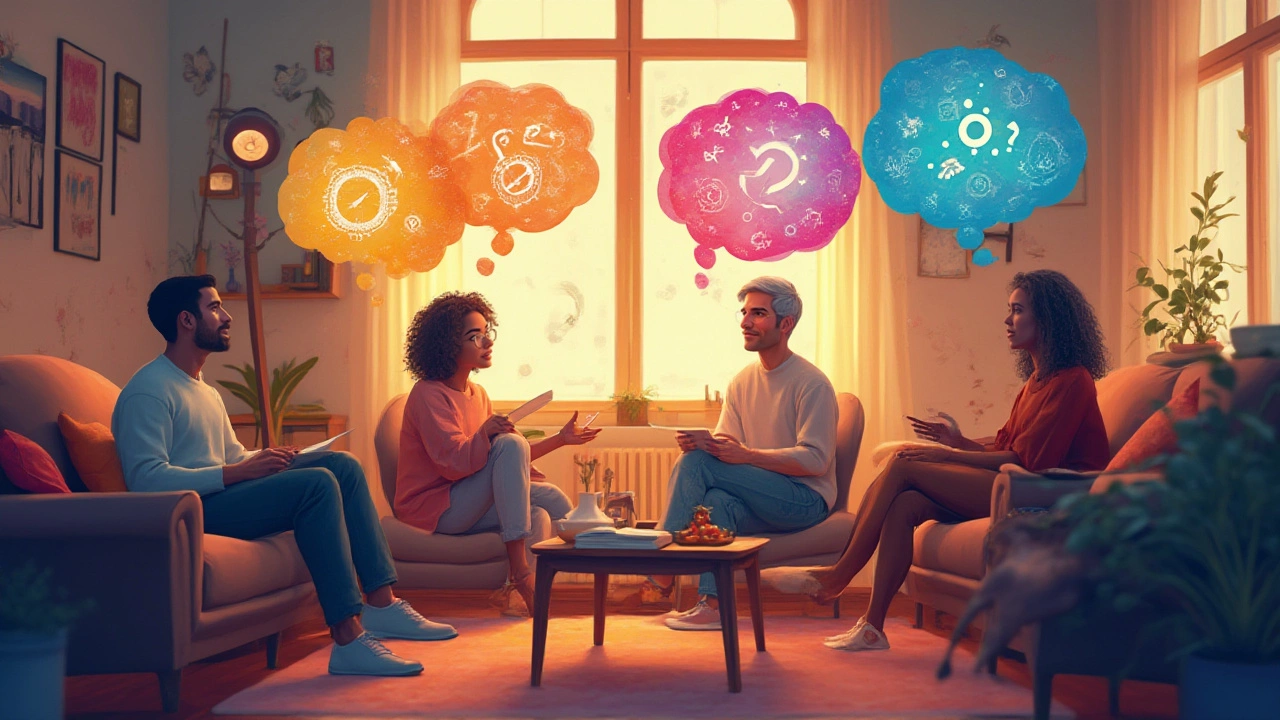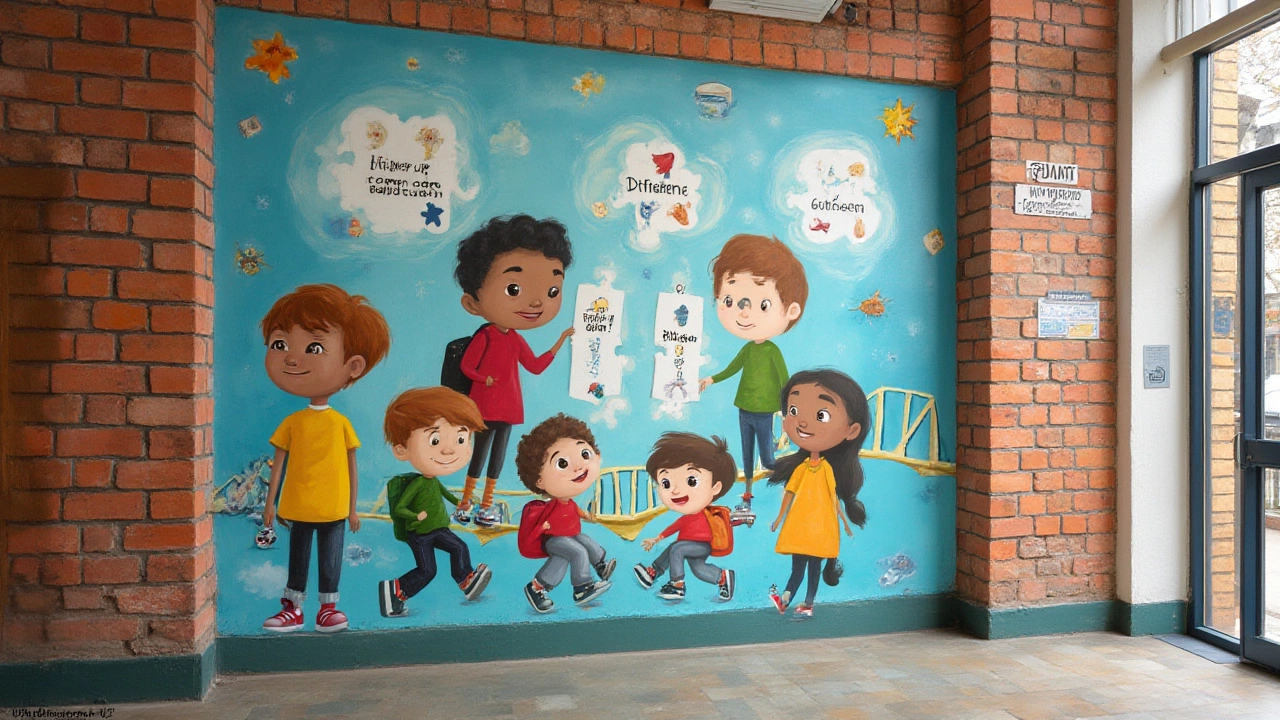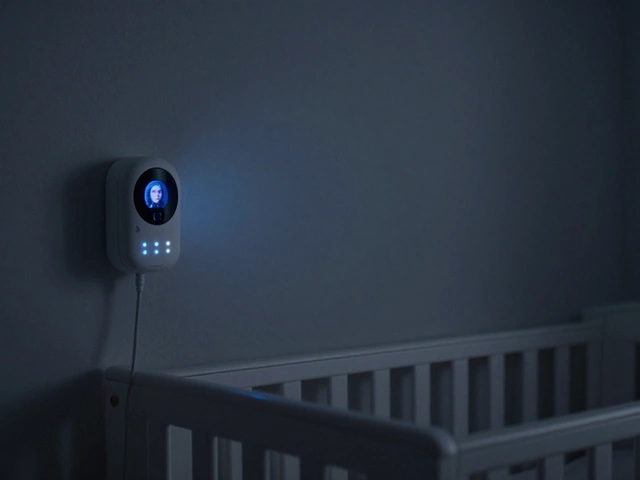
You’ve probably heard whispers about ADHD being a form of autism. Maybe you’ve seen debates on social media, or wondered yourself when a friend’s diagnosis seemed to cross both lines. There’s a lot of confusion here, with myths that could fill pages. What’s the real deal? Are these two conditions twins, distant cousins, or just neighbors in the world of neurodevelopmental differences?
What is ADHD and What is Autism?
Let’s lay the groundwork without any medical mumbo-jumbo. ADHD stands for Attention Deficit Hyperactivity Disorder. It’s all about trouble with focus, impulse control, and sometimes hyperactivity that can turn everyday stuff—like sitting still or finishing homework—into massive challenges. People with ADHD might daydream so hard they forget the world around them, lose their keys three times a day, or blurt out ideas in the middle of someone else's sentence. It’s not just about bouncing off walls; lots of adults with ADHD find their brain has its own soundtrack playing during work meetings.
Autism, or Autism Spectrum Disorder (ASD), covers a different set of patterns. It’s not just about being "quirky" or shy. The bones of autism are differences in how people communicate, interact socially, and relate to the world. Somebody with autism may absolutely love routines, get distressed if plans suddenly change, or notice tiny details everyone else ignores. Expressing emotions, reading facial cues, or handling loud spaces can all feel extra hard. But here’s the kicker—autism is a spectrum, so it doesn’t show up the same way for everyone. Some need lots of support, others just a bit.
So, to answer our big starter question: ADHD is not a form of autism. They’re two separate, official diagnoses. But sometimes, the lines get blurry because both are what researchers call “neurodevelopmental disorders.” That mouthful just means the brain develops and works in a way that’s kinda different from the norm, and that difference shows up early in life. But even inside this same category, ADHD and ASD follow their own rules.
Similarities and Overlaps That Cause Confusion
Ever talk to someone and think, “Wow, that sounds like ADHD, but wait… didn’t they say they’re autistic?” You’re not alone. The overlap is real. Studies suggest that about 30-50% of people with autism also have symptoms of ADHD, and vice versa. That's a huge number—basically enough to start your own club! So, where do the lines blur?
Both ADHD and autism can come with challenges in regulating attention. Zoning out, getting distracted, or fixating on stuff that others might ignore—these could be found in both. Social difficulties can also pop up with either. Someone with ADHD might blurt things out or have trouble following social rules because their focus jumps around. Meanwhile, someone with autism might miss some social cues altogether, or find eye contact draining.
Then there’s sensory stuff: loud noises, itchy sweaters, bright lights. People with ADHD and autism may both freak out in these situations. Repetitive behaviors? Autistic people might line up toys for comfort, but someone with ADHD could fidget with pens or tap their feet. See why it gets confusing fast?
This is exactly why a lot of people—especially women and girls—get misdiagnosed for years. ADHD is often missed in girls because they’re less likely to be hyperactive and more likely to space out. Autism can be overlooked if social struggles look more like ADHD’s trouble focusing than classic autistic withdrawal. One thing’s clear: if you’re seeing overlap, you’re not imagining it.
| Feature | ADHD | Autism |
|---|---|---|
| Core Challenge | Attention, impulse control | Social skills, communication, routines |
| Onset | Early childhood | Early childhood |
| Sensory Issues | Common but less intense | Very common; often intense |
| Prevalence | About 5% of children ~2.5% of adults |
About 1 in 36 children |
| Response to Routine | Can struggle to stick to routines | Very attached to routines |
| Interest in Social Interaction | Usually wants to connect, but may struggle | Interest ranges; may prefer being alone |
| Symptoms May Fluctuate | Yes, often with context (school vs home) | More stable over time |

What Sets ADHD and Autism Apart?
If you compare a Venn diagram with these two, you’ll find a fat middle section, but also important stuff hanging out on the edges. The biggest giveaway: social communication. People with autism might genuinely not recognize when a conversation veers off-topic or when someone’s bored, while people with ADHD usually get it, but lose track because their attention skips out. So it’s less about not picking up signals, and more about chasing a runaway brain-train.
Another difference is routines and flexibility. Autistic people can absolutely need sameness. Move a favorite mug or change the morning schedule, and it can cause huge anxiety. Meanwhile, people with ADHD might crave novelty so much that the very idea of sticking to routines makes their skin crawl—unless those routines are exciting or urgent. This isn’t just preference; it’s a core part of how their brains work and what helps them feel calm.
There are also language skills. Delayed language is common with autism but not as much with ADHD. Autistic kids might not point to things to share interest or may hesitate to use gestures, while kids with ADHD often talk a mile a minute. Plus, ADHD symptoms can wax and wane more with setting: a kid who can’t sit still in class may be laser-focused while playing video games. Autism differences stay pretty steady across situations.
So if you’re trying to spot the difference, look past the surface. Two people might both interrupt others, but only one of them might miss why it’s a problem—or why that facial expression matters. That’s a hint you may be seeing autism instead of or in addition to ADHD.
Can Someone Have Both Conditions? Here’s What We Know
Here’s something a lot of folks don’t realize: having one doesn’t make you immune from the other. In fact, ADHD and autism are officially diagnosed more and more together. The old rulebooks used to say this was impossible—imagine doctors in the 1980s crossing out your chart if you tried. But those days are gone. Now, it’s widely accepted: you can have both, and in fact, if you do, your challenges can multiply.
So why do ADHD and autism overlap so much? No one has all the answers, but genetics play a big role. Recent research found that some of the genes tied to ADHD show up in autism, too. It's like the same ingredients in two different recipes. That doesn’t mean these conditions are the same, just that brains can be wired in multiple unique ways using a few of the same building blocks.
Treatment can get complicated. Let’s say you get diagnosed with both. Medication for ADHD, like stimulants, works for a lot of folks but won’t always help with social differences linked to autism. Therapy that helps autistic people learn social skills might still leave focus and impulsiveness in the lurch if ADHD isn’t treated too. You have to address each part—there’s no magic pill that zaps both away.
- If you or someone you love struggles with both, try “chunking”—breaking tasks into tiny steps to fight off overwhelm.
- Predictability can help, but throw in some fun surprises—this blends what works for both conditions.
- Some people benefit from visual schedules; others swear by timers or phone reminders.
The bottom line: it’s not a question of picking one label over the other. ADHD and autism can ride side by side, and each deserves real attention.

Tips for Spotting the Difference and Getting Support
It’s easy to tumble down the rabbit hole of symptoms and self-quizzes, but there’s no substitute for a good evaluation by a mental health pro who truly “gets” neurodiverse brains. Most people first notice issues in childhood, but ADHD and autism can hide, especially in girls and non-binary folks. So what should you keep in mind if you’re wondering about yourself or your kids?
- Look for patterns, not just moments. We all have scatterbrained days or awkward conversations. But if struggles with attention, organization, or social stuff show up again and again—and in more than one place (like school and home)—that matters.
- Take note of what triggers stress. Is it changes in plans, noisy places, long instructions? Folks with autism often feel safer with predictability, while those with ADHD might get bored or anxious without stimulation.
- Watch for "masking." Lots of people, especially girls, learn to hide their symptoms. They might mimic friends, rehearse how to act, or avoid situations that make them feel different. Over time, this can lead to anxiety or burnout.
- If you see big strengths—like wild creativity, deep focus on favorite topics, or empathy for outcasts—notice those too. Both conditions come with gifts, not just struggles.
What about adults? Tons of people drift through school or work thinking they're just lazy or flaky, when really, their brains are wired differently. If you constantly lose your phone, struggle in meetings, or hate networking because small talk is confusing, it’s worth talking to someone with experience in both ADHD and autism. And if you get one diagnosis, ask if the other’s been considered—misdiagnosis is all too common.
Don’t be afraid of labels—they unlock the right tools, therapies, and communities. Stimulant meds can make a huge difference for ADHD, while autistic folks often gain confidence in group therapy or with “social stories” that map out tricky situations. There are podcasts, Facebook groups, and TikTok creators busting stereotypes every day. Seek them out—you’re not alone on this ride.
The real takeaway? ADHD is not a form of autism, but the two often overlap and can be mistaken for each other. Knowing the difference unlocks real support. Whatever path you take, celebrate that wonderfully unique brain of yours, and don’t let anyone shove you in the wrong box.






